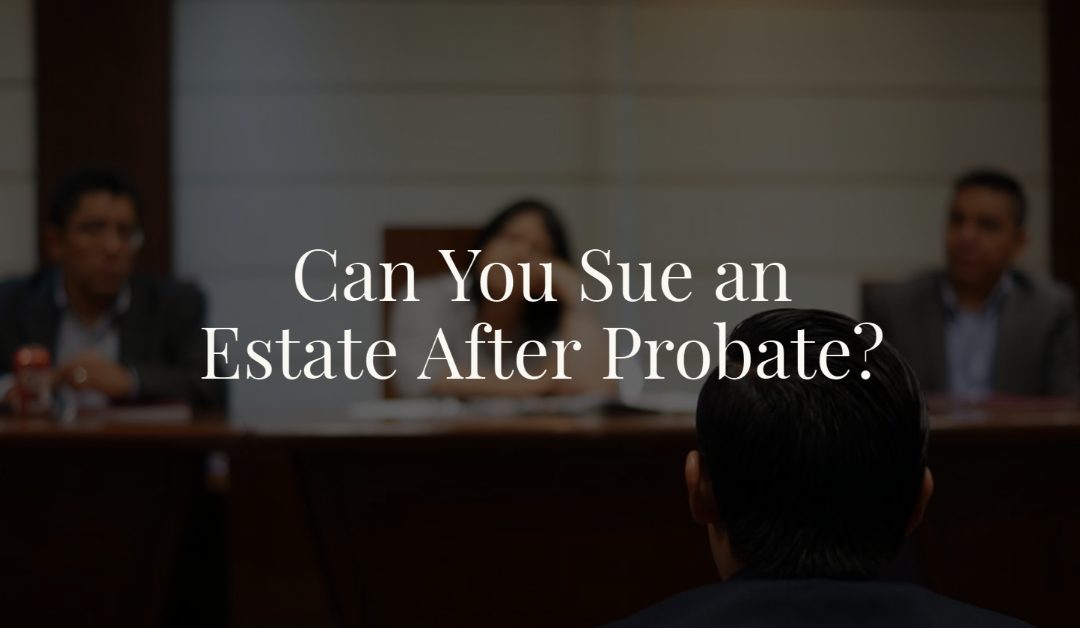Probate in NC is the process by which a court decides how to distribute a deceased person’s assets after they pass away. Some assets may transfer to the heir upon death and some may have to go through probate court. Anything that passes through the court can take a year or more to be distributed and there are court fees and possible lawyer fees that must also be paid from the estate.
Generally, once the process of probate is complete, the estate is considered closed and the heirs move on and spend their inheritance, often on funeral or memorial expenses. Trying to reopen probate to sue an estate is a difficult endeavour possibly causing wasted time, money, and effort. Frustrated heirs are also ready to fight for the inheritance they already received.
Process of Probate
Because probate is a public process, anyone can find out about the assets involved and who will inherit. Anyone who wants to collect a judgment from the deceased can sue the estate, but it must generally be filed while the probate process is open. There are only a few reasons why a court would choose to reopen the probate process.
Additional Assets Found
After probate for an estate has closed, there are no legal definitives about what should happen if someone wants to reopen probate to sue. Probate lasts for several months to several years because it is the Personal Representative’s job to uncover all assets, all creditors, and all beneficiaries or heirs before distributing the assets. It is not always easy to find every asset or debt owned by the deceased. If the court determines that there are additional assets after probate has closed, they will reopen the probate process to distribute the new assets and pay any taxes on those assets.
Contesting the Validity of the Will
In general, this should be done as soon as possible. Once the court probates a will, it is unlikely that they would accept another will. Even if you fight the battle to get another will probated and the old one thrown out this type of claim would be considered even more unlikely after probate is closed.
If you are a child of a deceased who made provisions for you in the will, even if they are not adequate, the wishes of the deceased still stand. It is unlikely that you have a case unless the deceased did not make any mention of you in the will. If you were wholly unconsidered, you may have a case to reopen probate and for the court to make a provision for you as an heir.
File a Petition
The first step would be to file a petition to reopen probate for an estate that has been settled. Contacting an attorney knowledgeable in Probate Law would be essential for a case such as this. Contesting the actions of a probate court is not something to take on as a layperson. This would be a lengthy process that would have multiple opponents and many differing opinions with a litigious aspect that not many families could make it through intact.
The Personal Representative who was originally appointed for probate court has already done their duty and been discharged. In the petition you would draw up with your lawyer, you would need to name someone you believe should be the new Personal Representative.
Also, as part of the petition you would name the reasons for reopening probate and any newly discovered assets or necessary acts not performed by the Personal Representative. If you are suing the estate for previously distributed assets, this would also be part of your proper reasons for drawing up a petition to reopen probate.
Your Reasons
If you are an illegitimate child and have proof that you were owed in the settlement of the estate but were not included, you would have grounds for reopening the probate, but depending on how long the estate has been settled, and why you missed out, the judge may or may not grant you anything. You might not even be able to recoup anything for your efforts.
If you are someone who stood to inherit in a previous will, but did not inherit in the estate under the probated will, you would also need to petition the court to reopen probate. In this case, you would need to also dispute the will by providing documentation on dates, times, and conversations to authenticate the new proposed will. Letters, emails, checks or any other relevant materials that demonstrate the credibility of your case would come into play in this scenario.
Estates Owe Creditors and Taxes
Much of an estate settlement goes to paying off creditors or to Medicaid Recovery Efforts. There is usually not much left to inherit and you would also want to consider the amount of money you would spend on lawyers and court fees. A court will rigorously consider whether your petition has merit and may charge for costs and damages that were suffered by the estate if it finds that your case was wrongfully submitted. And lastly, the ill will you would stir up among those heirs you would stand to receive benefits from would not be inconsequential.
Get Help
In a case such as suing an estate after probate, many legal issues stand to be fought over by lay persons and lawyers alike. This would be a very public and difficult battle in which you would need the most experienced and knowledgeable Probate lawyers to take part. If you decide to fight this battle despite the odds, make sure that you have an experienced attorney who fully understands probate law. You stand to lose money and/or family whether your case wins or not, and only after a consultation with an experienced and knowledgeable attorney would you begin to understand whether the fight would be worth the effort.

